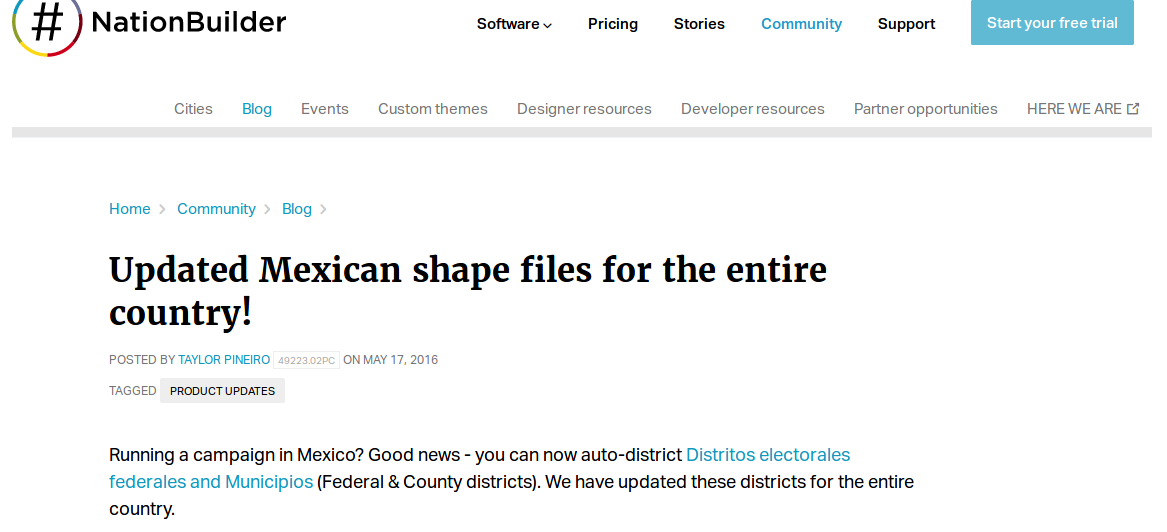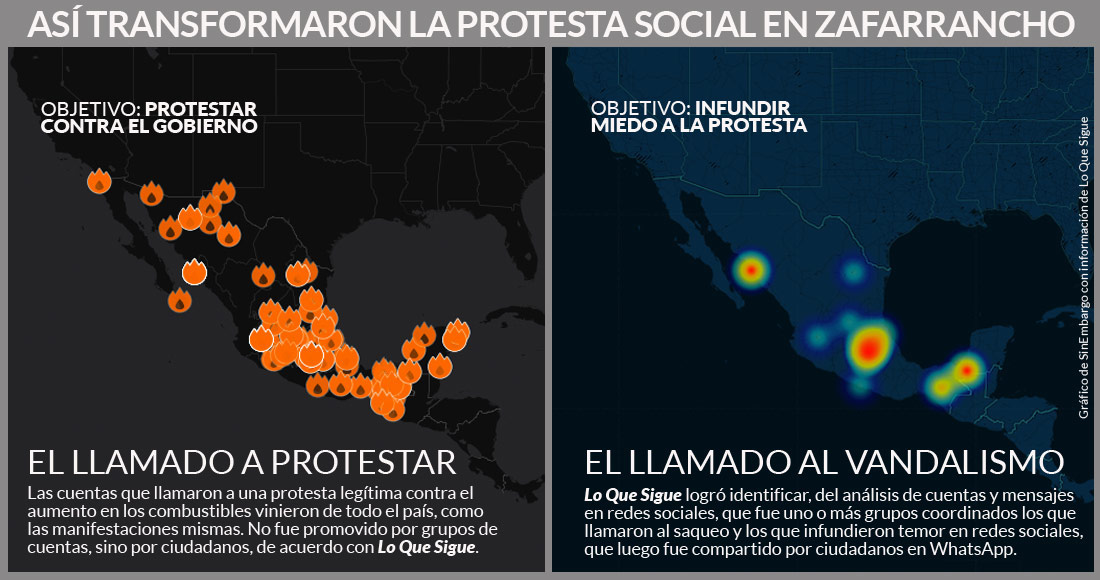| When Tactical Tech’s Data and Politics research team began to investigate how personal and individual data was being utilised in modern, digitally-enhanced political campaigns, we were quickly struck by the unbalanced coverage, particularly in the media, of the methods and strategies of data acquisition, analysis and utilisation by political campaigns across countries and different political contexts. In collaboration with international partners, we produced 14 studies to identify and examine some of the key aspects and trends in the use of data and digital strategies in recent and/or upcoming elections or referendums in Argentina, Brazil, Canada, Chile, Colombia, France, Italy, India, Kenya, Malaysia, Mexico, Spain – Catalonia, the United Kingdom and the United States. By working with journalists, digital rights advocates, lawyers, academics and data scientists, our multidisciplinary and practitioner-led approach has produced contextual overviews and tangible case studies of how personal and individual data is used by political campaigns in countries across the globe. With this collection of reports, we aim to expand our understanding of these issues beyond the contemporary, global-north focused coverage. |
|---|
On 1 July 2018, Mexico took to the polls for the largest election in its history. Aside from electing Andrés Manuel López Obrador (known as Amlo) as their new president, Mexicans also elected over 3,000 officers, among them 9 governors, 628 federal legislators, 983 local deputies and more than nearly 2,000 mayors. These elections marked a complex moment in Mexican politics: in the run-up to the election, polls showed that only 4% of the population trust their political parties, an indication that voter turn-out could be low. What's more, different coalitions are formed on the federal, state and city levels, making the political environment particularly complicated in a country that has been governed by the same party – the Institutional Revolutionary Party, or PRI – for more than 70 years. On top of that, the now former president, Enrique Peña Nieto, experienced his lowest approval rating (12%) since his election.
Tactical Tech partnered with the Mexican non-profit organisation Articulo 12 to investigate the role that data and political influence have had in previous campaigns in the country and how they will influence the upcoming elections. The research is detailed in an extensive report in Spanish available here. Artículo 12 is the first civil association that promotes, protects and defends the rights to privacy and the protection of personal data of internet users in Mexico. Below is a summary of some of our partner's key findings in their examination of the use of digital tools in elections in Mexico. Their research focused on how PRI, the predominant political party in Mexico, has used the internet and data analysis in its two most important elections in the past six years, and how it is using them in the current presidential campaign.
Internet and social networks play a major role in political campaigning in Mexico
Although internet access in Mexico is growing and fairly widespread, due to poverty and inequality there is a still a clear digital divide. Internet penetration in the country extends to 59.5% of Mexicans, which is equivalent to 65.5 million people. Of these, internet use is most widespread among young people (18–34 years old) who make up 79.1% of the population.The following statistics reveal the importance that the internet and social media have acquired in the electoral campaigns:
3 out of 4 mobile phone users own a smartphone, and therefore mobile advertising in Mexico represents 53.9% of the total spending on digital advertising.
The most popular social network is Facebook – 74% of users connect to it at least once a day, and 36% stay connected to it between one and three hours per day. 51% of users connect to YouTube daily or several times a day. 53% of Twitter users connect to the platform at least once a day, most of them for more than one hour per day.
Of all the parties, PRI has spent the most money on advertising via social media, although the National Action Party (PAN), Mexico Green Ecologist Party (PVEM) and Citizen Movement have also spent large amounts.
Data-focused digital strategists and digital campaigning firms have been and are operating within Mexico on political election campaigns
- Political marketers use traditional segmentation according to ethnic groups, combined with psychometric analysis and geo-targeting. Audiense and Nation Builder are the most popular data-analytics tools, which are fed with data from websites and social networks.

Cambridge Analytica worked with PRI in Mexico on the upcoming election, but according to Articulo 12's research, it stopped operating because it did not obtain the expected results. According to one of the experts interviewed in the report, “Our country is not suitable for strategies like the ones used in the US and UK. There are still big digital divide issues and a more complex cultural context that makes the microtargeting via Facebook or other social networks not as effective.”
Sophisticated digital strategies based on the collection, processing and analysis of data are still being developed in the country, mostly because of the digital divide. Nevertheless, older more dubious practices such as clientelism or smear campaigns are being translated to the digital environment.
Digitising dubious campaign practices is damaging the democratic political debate in Mexico
The research in Articulo 12's report reveals that the traditional, toxic practices of bad politics that have been used in Mexico are being transferred to the digital realm. An analysis of PRI's most important political campaigns shows that the party is currently employing these tactics and strategies in the prelude to the coming elections. Some of these practices include:
Clientelism and the use of data from the public health sector: the practice of vote buying (clientelism) is now being applied in the digital environment. In 2017, PRI used the network of servers and programmes of the national health sector to recruit voters in favour of the governor candidate Alfredo del Mazo Maza, using data collected from voter credentials, mobile devices and citizen addresses. The operation consisted of collecting voter data to hand out PRI cards, where they were offered electronic money cards called "pink salary," which would be activated after the candidate was proclaimed the winner. During Peña Nieto's campaign, a similar strategy took place.
WhatsApp as a political tool: political parties are using WhatsApp to communicate directly with voters. Messages sent via WhatsApp are tailored to help shape the political discourse and connect with the concerns, desires and problems of specific voters who interact via WhatsApp groups.

WhatsApp is also used by PRI for less ethical purposes during political campaigns, including clientelism, spreading misinformation and attacking the reputation and image of other candidates.
- Fake news: More than 3,000 websites are currently being used by the political campaign of the PRI’s presidential candidate, José Antonio Meade, to create and spread fake news. In the beginning of 2017, the hashtag #saqueaunwalmart (Ransack a Walmart) was spread mostly by bots with the aim of stoking fear amongst the population, which was legitimately using social networks to protest against the rise of the gas prices. The #saqueaunwalmart campaign was supported by messages on WhatsApp which falsely implied that people should not leave their houses for safety reasons.

Bots: the use of bots on social networks to support or attack candidates and/or disseminate fake news and fake profiles of supporters are common practices in Mexico. The method first appeared during the campaign of the current president Peña Nieto, with the so-called Peñabots. Currently, it is estimated that José Antonio Meade's campaign is employing more than 2.5 million bots.
PRI Observatory: another PRI strategy is to invite supporters in social networks to the "PRI Observatory Blog" (which also exists as profiles on Twitter and Facebook). In order to join the group, the PRI supporter has to submit the following data: name, date of birth, age, place of birth, address, occupation, phone number, WhatsApp, email and social media contacts. After verifying the profiles are real, they mix their profiles with PRI's bots to make the bots appear more legitimate. The investigation shows that PRI converts its supporters' data into digital accounts to help spread their political campaigning on social networks.
A lack of effective regulations or sanctions on digital and data-powered political campaigning exacerbates bad political practices
Articulo 12's report shows that data-protection regulation and electoral laws are insufficient to prevent the bad practices that affect the democratic process in Mexico:
Mexico has two broad laws on the protection of personal data which should, in theory, regulate how political parties are able to use personal data. However, the agency that regulates political campaigning, National Electoral Institute (INE), does not have the authority to sanction the illegal use of personal data, that has allowed the practices mentioned above to exist.
The General Law of Electoral Institutions and Procedures, which governs Mexican elections, regulates the spending of political parties on advertising on social networks and the Internet, but not the content of what political supporters publish and disseminate. This has also allowed bad practices to continue to affect democratic processes.
According to our partners, there is an obligation to be transparent about the spending on political campaigns by the parties, but according to some marketing experts interviewed for the report, many of them pay the services in cash to avoid tracking. All the political parties contacted by Articulo 12 denied to disclose information regarding the contracts with political online marketing and data analysis companies.
For more details on the above highlights, read Articulo 12's full report on how data is influencing the elections in Mexico here.
An introduction to the Influence Industry project can be found at The Influence Industry: The Global Business of Using Your Data in Elections and an introduction to the tools and techniques of the political data industry can be found at Tools of the Influence Industry.
Danny Rayman is a litigant lawyer and researcher from Latin America with a background in human rights, and especially in digital rights. Raquel Rennó is a researcher from Latin America and Our Data Our Selves project lead at Tactical Technology Collective with a background in opinion polling and marketing research.
Thank you to Christy Lange and Stephanie Hankey for their comments and support. A thank you to Varoon Bashyakarla for his technical assistance posting this piece online.
Published June 28, 2018. Updated: July 2, 2018
Data and Elections in Chile: Update from Datos Protegidos
Digital Election Trends in Uganda
Personal Data and the Influence Industry in Nigerian Elections
Data & Politics Virtual Round-table: Sub-Saharan Africa Event Report
The Advent of Targeted Political Communication Outside the Scope of Disinformation in Ukraine
The Netherlands: Digital Literacy and Tactics in Dutch Politics
France: Data Violations in Recent Elections
Brazilian Elections and the Public-Private Data Trade
Catalonia: Contested Data and the Catalan Independence Referendum
USA: American Digital Politics and the Commercial Sector
Chile: Voter Rolls and Geo-targeting
India: Digital Platforms, Technologies and Data in the 2014 and 2019 Elections
United Kingdom: Data and Democracy in the UK
Kenya: Data and Digital Election Campaigning
Colombia: Personal Data in the 2018 Legislative and Presidential Elections
Argentina: Digital Campaigns in the 2015 and 2017 Elections
Canada: Data Analytics in Canadian Elections
Malaysia: Voter Data in the 2018 Elections
Italy: Personal Data and Political Influence